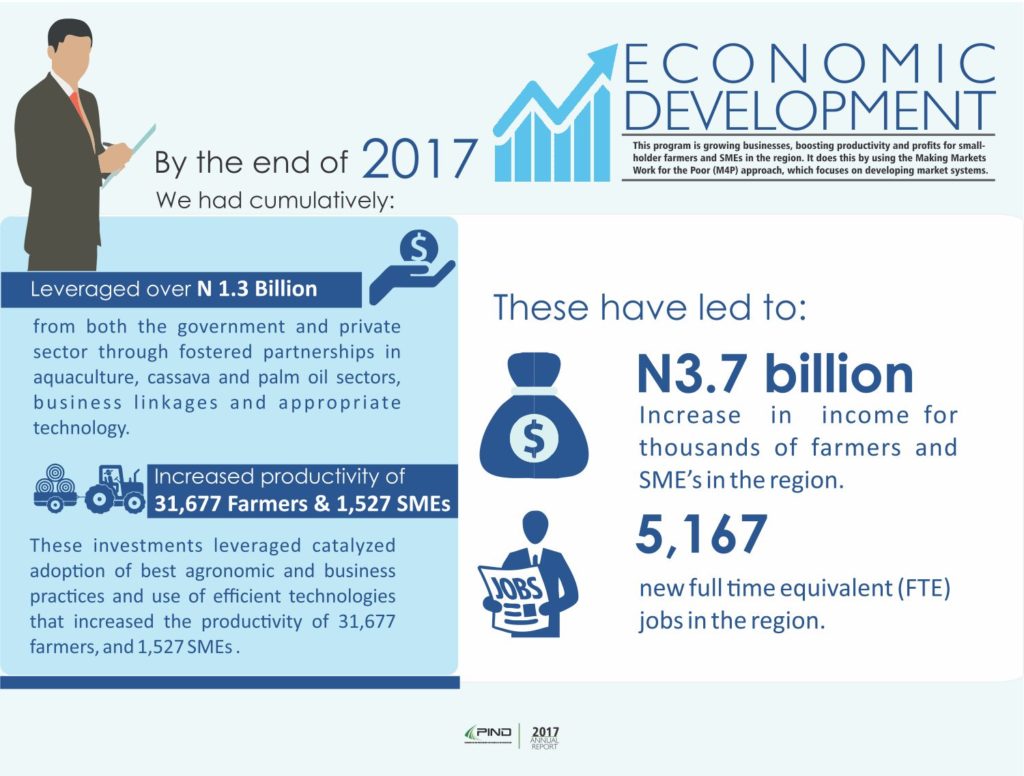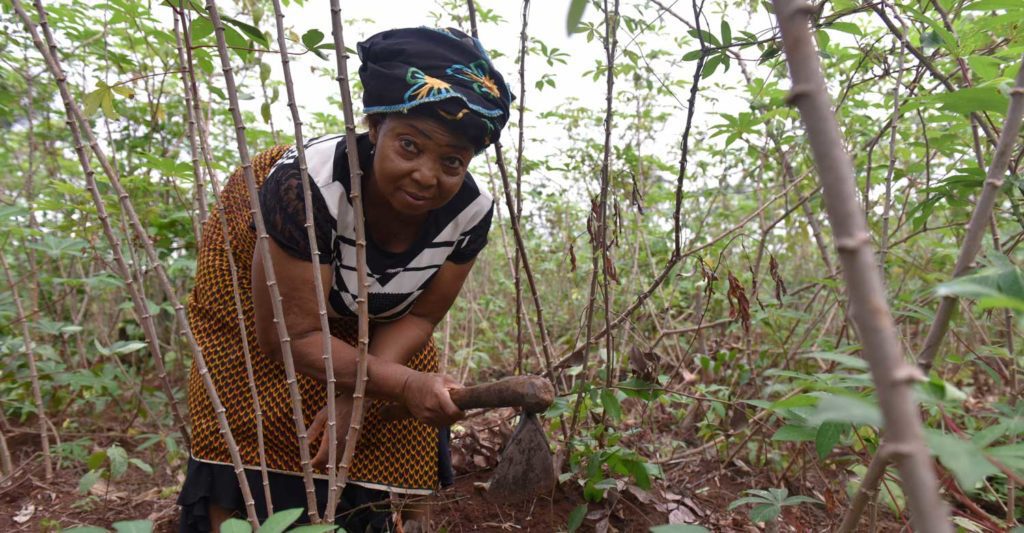ECONOMIC DEVELOPMENT
This program is growing businesses, boosting productivity and profits for small-holder farmers and SMEs in the region. It does this by using the Making Markets Work for the Poor (M4P) approach, which focuses on developing market systems.
Through a robust systemic analysis of economic opportunities in the Niger Delta, PIND selected the palm oil, cassava, and aquaculture sectors with a significant growth potential and identified the drivers and constraints within the sectors.
Using the data, we partnered with the various market actors (farmer associations, private companies, government agencies, service providers amongst others) to pilot and scale up value chain projects in aquaculture, palm oil and cassava to improve agronomic and business practices of farmers, increase their access to and use of efficient technologies and facilitate linkages between market actors. Our economic development work also extended to improving the business outcomes and competitiveness of small businesses by providing access to market, finance and business advisory services to select Niger Delta-based small and medium-scale enterprises (SMEs).
By the end of 2017, we had cumulatively leveraged over N1.3billion in new investments from both the government and private sector through fostered partnerships in aquaculture, cassava and palm oil sectors, business linkages and appropriate technology. These investments catalyzed adoption of best agronomic and business practices and use of efficient technologies that increased the productivity of 31,677 farmers, and 1,527 SMEs which led to a net increase in income over N3.7 billion for thousands of them and facilitated the creation of 5,167 new full time equivalent (FTE) jobs.
The private market actors (agro-input, agro-dealers, fabricators and agro-service providers) PIND catalysts are leading the scale up of interventions to more locations across the region, independent of the Foundation – they are sustaining and spreading the benefits beyond PIND (sustainability).
The business service providers trained by PIND to support the farmers and SMEs are continuing to serve these businesses, selling their services to them without our involvement (sustainability).
Some assisted SMEs are supplying goods to markets within and outside the region, without PIND as a middle man (sustainability). They also attract loans for business expansion due to their improved business skills and systems.

Vibrant Support Market, Higher Productivity, Bigger Incomes for Smallholder Farmers.
Smallholder farmers’ businesses tend to fall below their profit potentials because of poor agronomic practices and lack of access to new technologies and market. This stems mostly from inadequate agronomic and business information, and their not coordinating with other value chain actors. The support market is a range of functions – such as training services, financial services, provision of information/advice for farmers and small businesses – that helps the core value chain functions (production, processing and marketing) to grow, develop, learn and adapt.

By catalyzing the support market, these farmers would get products and services in support of a range of their business functions that would improve their productivity and increase their incomes – and that is what we continued working to achieve across three agricultural value chains (aquaculture, cassava and palm oil) in 2017.
DOWNLOAD REPORT HERE PIND 2017 Annual Report (4150 downloads )




